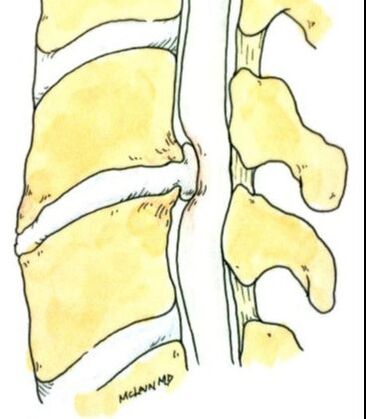When Does “Early” Spine Surgery Make Sense? When should you consider surgery for your back or neck? The old “rule of thumb” was that surgery for your back should be the very last thing you consider – when everything else has failed! Like most “rules of thumb” though, that’s only good advice some of the time. In certain situations, putting off surgery can lead to problems down the road, or be down-right dangerous. Here are FIVE CONDITIONS that may need surgery earlier rather than later:
Conditions that destroy bone are usually more serious medical conditions, like tumors or infections, and require your Medical Specialists and your Spine Surgeon to work together. While the medical management is often the key to controlling the underlying disease, delaying surgery can lead to bone collapse and cause a much greater problem. Modern surgical techniques can provide stability with an overnight stay, keeping patients on their feet and minimizing pain during medical management. Spinal deformities should not be allowed to progress. A curvature of the spine or a slip of one vertebra relative to another that progresses in adulthood is most likely going to keep progressing! Early treatment will be less difficult and more successful than surgical reconstruction when the problem is severe. Nerve compression or spinal cord compression may be observed by your doctor for a while, but if symptoms of arm or leg pain are severe and persistent, or if any symptoms of spinal cord compression develop, there is no role for continued physical therapy or pain management. Spinal cord or nerve damage may become permanent, and surgery then - as a “last option” - may not do much good. Finally, there are some options available to patients with neck and back pain that just didn’t exist 20 years ago. Disc replacement, or disc arthroplasty surgeries lead to fewer re-operations and complications than traditional fusion procedures, and they protect the adjacent levels from degeneration often seen after fusion. However: total disc replacement operations PRESERVE MOTION, meaning that earlier surgery, while the spine is still mobile, is crucial. Waiting until the “last option” may mean there’s no motion left to preserve. And then, fusion is the right thing to consider.
3 Comments
1/19/2023 11:03:23 am
I liked how this post shared that we should not let spinal deformities progress. My friend wants to undergo spine deformity surgery to treat her condition. I should advise her to go for it so she can live a more normal life.
Reply
6/3/2023 03:09:27 am
Hi, I read your blog which is really very nice. It has a lot of information and points which we should know.
Reply
2/26/2024 02:33:29 am
We Care IVF Surrogacy offers exclusive assistance and experience, the best surrogacy clinic in Kenya. Our dedicated team offers comprehensive surrogacy services with a focus on individualized care and successful outcomes for intended parents and surrogates alike.
Reply
Leave a Reply. |
Details
AuthorI'm Dr. Rob McLain. I've been taking care of back and neck pain patients for more than 30 years. I'm a spine surgeon. But one of my most important jobs is... Archives
January 2024
Categories |

 RSS Feed
RSS Feed